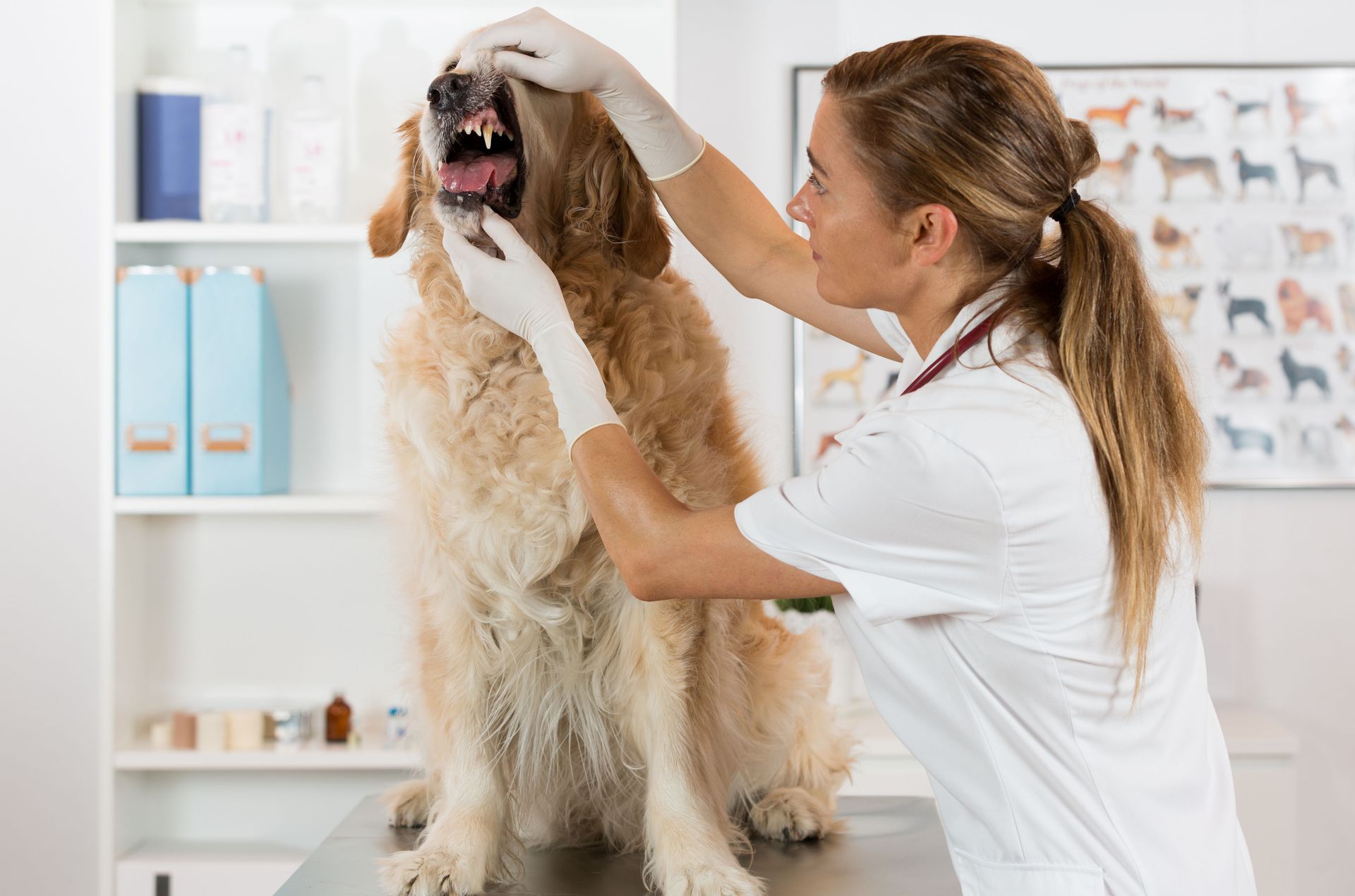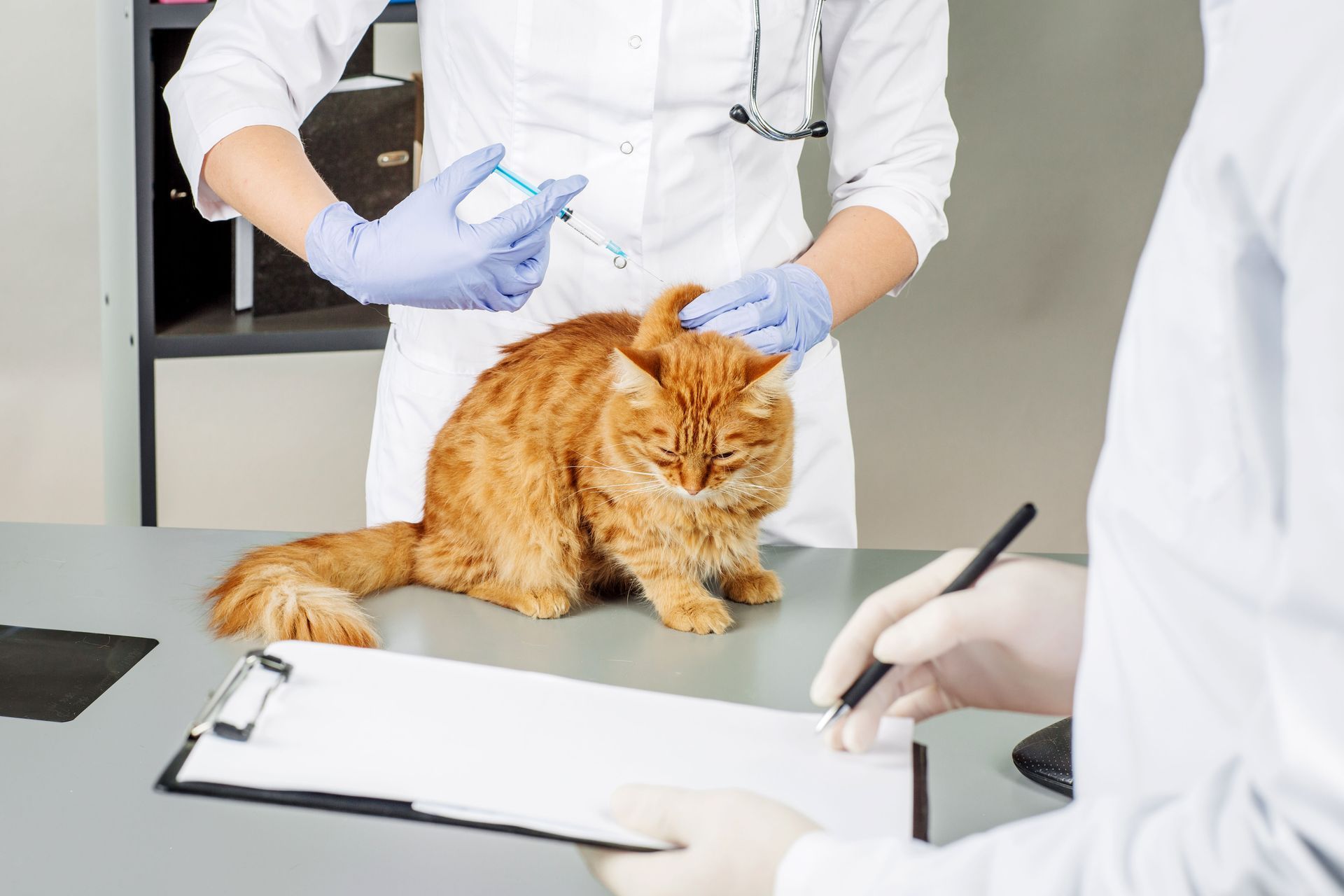November 7, 2025
Maintaining your dog’s health goes far beyond regular vaccinations and routine checkups. One area often overlooked by pet owners is oral health. Just as in humans, a dog’s mouth can harbor bacteria that, if left untreated, can lead to serious health complications. Prioritizing dog dental care not only prevents pain and discomfort in your pet but also safeguards their overall well-being.
The benefits of proper dental care extend far beyond fresh breath. Gum disease, tooth decay, and infections in the mouth can quietly affect vital organs, creating challenges that may be difficult to detect until they become severe. By integrating regular veterinary dental visits into your pet’s health regimen, you are investing in both their happiness and longevity.
Regular dental care can help your dog maintain better nutrition, as healthy teeth allow them to chew food properly. It also strengthens the bond between pet and owner, as regular care ensures your dog is comfortable and pain-free.
Understanding How Oral Health Impacts Overall Well-Being
Oral health is often the first line of defense against systemic diseases in dogs. Bacteria present in a dog’s mouth can enter the bloodstream, potentially affecting the heart, liver, and kidneys. Veterinarians have noted that untreated dental issues may contribute to conditions like endocarditis, kidney disease, and other serious complications.
Dogs are masters at hiding pain, so they may not show obvious signs of discomfort even when dealing with significant dental problems. This is why professional dog dental care is essential: it ensures that underlying issues are identified and treated before they escalate.
Regular dental cleanings at a veterinary clinic involve more than just polishing teeth. Veterinary professionals assess for early signs of gum disease, oral tumors, and other conditions that might otherwise go unnoticed. By doing so, they provide a proactive approach that protects your dog’s overall health, rather than merely reacting to problems after they arise.
Recognizing Common Dental Issues in Dogs
Canines can suffer from a variety of dental problems that negatively impact their quality of life. Periodontal disease is one of the most common, occurring when plaque and tartar build up around the teeth and gums. This can lead to painful inflammation, tooth loss, and bacterial infections.
Another frequent issue is tooth fractures, which may happen when dogs chew on hard objects. Broken teeth are not only painful but can also lead to infection if bacteria enter the exposed pulp. Early detection through veterinary care can prevent complications and reduce discomfort for your pet.
Additionally, oral tumors and cysts, though less common, can pose serious risks if left untreated. Regular checkups and professional cleanings allow veterinarians to identify these conditions early, offering treatment options that improve your dog’s prognosis. Investing in routine dental evaluations is a crucial step in maintaining your pet’s long-term health.
Examining How Dental Disease Affects the Body
Dental disease can silently compromise multiple organ systems in dogs. When bacteria from the mouth enter the bloodstream, they may contribute to heart disease by affecting the valves and lining of the heart. Kidney and liver function can also be impacted over time, leading to more complex and costly health issues.
Beyond physical health, dental problems can affect behavior and overall quality of life. Dogs with painful teeth may eat less, lose weight, or become irritable due to chronic discomfort. This makes routine dog dental care vital; not just for preventing disease but for ensuring your pet remains happy and active. Even mild dental disease can gradually diminish a dog’s energy and overall well-being, making early intervention essential.
Addressing oral health issues early helps reduce the risk of long-term systemic problems. By partnering with a veterinarian for regular cleanings and assessments, pet owners can ensure that minor issues do not evolve into life-threatening conditions, supporting a longer, healthier life for their furry companions.
Implementing Preventive Veterinary Dental Care
Preventive dental care is far more effective than treatment after the fact. Veterinary clinics offer comprehensive exams that can detect the earliest signs of gum disease, tooth decay, and other oral health concerns. Professional cleanings under anesthesia allow for a thorough removal of plaque and tartar that brushing alone cannot achieve.
According to Freedonia Group, a 2024 survey indicated that over 50% of pet owners would be willing to reduce their personal expenses to ensure their pets are healthy. This reflects a growing awareness among dog owners that investing in preventive care, including dental care, is an essential part of responsible pet ownership.
Veterinarians also provide guidance on at-home maintenance, such as brushing techniques and dietary recommendations that support oral health. While professional care is non-negotiable, these daily routines complement veterinary efforts and help maintain your dog’s oral hygiene between visits.
Identifying Signs Your Dog Needs Professional Dental Care
Recognizing the early warning signs of dental issues can prevent serious complications. Common indicators include bad breath, excessive drooling, difficulty chewing, and inflamed or bleeding gums. Behavioral changes such as irritability or reluctance to eat may also point to oral discomfort.
Veterinary professionals are trained to identify subtler signs that pet owners might miss. During routine checkups, they evaluate tooth alignment, plaque buildup, and gum condition to determine the best care plan. Early intervention often means fewer extractions and less extensive treatment later on.
Even if your dog shows no visible signs of dental problems, regular professional care is critical. Some issues develop slowly and remain undetected until they cause systemic problems. By scheduling periodic dental cleanings, you ensure that your dog’s mouth and overall health remain in top condition.
Reaping the Long-Term Benefits of Consistent Dental Care
The benefits of consistent dental care extend beyond immediate comfort. Healthy teeth and gums allow dogs to eat properly, maintain a healthy weight, and enjoy their daily activities without pain. Strong oral health also supports the immune system by minimizing chronic infections.
Investing in regular dental visits can reduce veterinary costs over time. Preventive care helps avoid complex procedures such as extractions, root canals, or treatment for systemic illnesses linked to oral bacteria. This not only saves money but also prevents unnecessary stress and discomfort for your pet.
Prioritizing dog dental care strengthens the bond between pet and owner. Knowing your dog is free from pain and disease provides peace of mind and ensures that your furry companion can enjoy a vibrant, active life. By making dental care a regular part of your dog’s routine, you are giving them the best chance at a long, healthy, and happy life.
Dog dental care is a vital component of overall pet health that should not be overlooked. Regular veterinary checkups, professional cleanings, and preventive care create a strong foundation for long-term wellness. By addressing dental issues proactively, you reduce the risk of systemic diseases, minimize discomfort, and support your dog’s quality of life.
Prioritizing your pet’s oral health is an investment in their future happiness and longevity. With the guidance of a trusted veterinarian, you can ensure that your dog’s teeth and gums remain healthy, preventing pain and costly complications. Establishing a consistent dental care routine also allows you to monitor subtle changes in your dog’s health, catching problems before they escalate. Healthy teeth contribute to a happier, more active, and longer life for your pet.
Protect your dog’s health today by scheduling a professional dental checkup at Benson Animal Hospital. Our team provides quality dog dental care to keep your furry companion happy, comfortable, and thriving.




